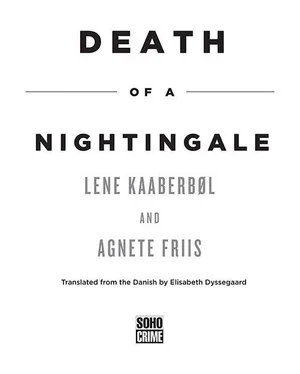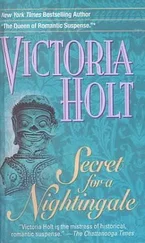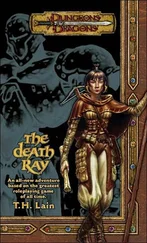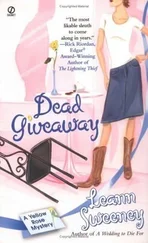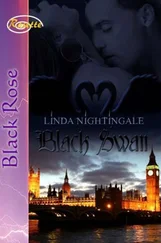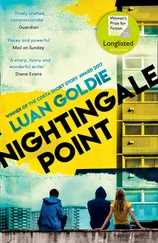Lene Kaaberbol - Death of a Nightingale
Здесь есть возможность читать онлайн «Lene Kaaberbol - Death of a Nightingale» весь текст электронной книги совершенно бесплатно (целиком полную версию без сокращений). В некоторых случаях можно слушать аудио, скачать через торрент в формате fb2 и присутствует краткое содержание. Год выпуска: 2013, ISBN: 2013, Издательство: Soho Crime, Жанр: Старинная литература, на английском языке. Описание произведения, (предисловие) а так же отзывы посетителей доступны на портале библиотеки ЛибКат.
- Название:Death of a Nightingale
- Автор:
- Издательство:Soho Crime
- Жанр:
- Год:2013
- ISBN:1616953047
- Рейтинг книги:5 / 5. Голосов: 1
-
Избранное:Добавить в избранное
- Отзывы:
-
Ваша оценка:
- 100
- 1
- 2
- 3
- 4
- 5
Death of a Nightingale: краткое содержание, описание и аннотация
Предлагаем к чтению аннотацию, описание, краткое содержание или предисловие (зависит от того, что написал сам автор книги «Death of a Nightingale»). Если вы не нашли необходимую информацию о книге — напишите в комментариях, мы постараемся отыскать её.
Death of a Nightingale — читать онлайн бесплатно полную книгу (весь текст) целиком
Ниже представлен текст книги, разбитый по страницам. Система сохранения места последней прочитанной страницы, позволяет с удобством читать онлайн бесплатно книгу «Death of a Nightingale», без необходимости каждый раз заново искать на чём Вы остановились. Поставьте закладку, и сможете в любой момент перейти на страницу, на которой закончили чтение.
Интервал:
Закладка:
“I know nothing,” she said. The blood sloshed under her tongue and made it hard to speak clearly. “Pavel never told me anything.”
He sighed. An old man’s exhaustion. The big hands rested on the steering wheel.
“Nonetheless,” he said, “I will give you a chance to try and remember something. Where did he hide his papers and pictures?”
Natasha shook her head. “There were only the things in the apartment,” she said, slurring her words. “There wasn’t anything else.”
She sensed at once she’d made a mistake by acknowledging that she knew something. She could see it by the tiniest of twitches in the heavy eyelids. “The things in the apartment …” he repeated. “You know we were there. You know we searched it.”
It was quiet between them for a long moment, during which Natasha heard nothing but the faint hiss of small, hard snowflakes against the car’s windows. Then the man opened the car door with a quick, angry jerk and stomped through the snow to the trunk. The old woman behind her emitted a long sigh and leaned back in her seat. Natasha caught the scent of her perfume and the musky smell of her mummified old body.
“I know nothing.” Natasha turned as far as she could and tried to catch the old woman’s gaze. “I don’t know what you are looking for. Please don’t touch Katerina.”
She would have said more, but it was as if her words hit an invisible glass wall. The old Witch just looked at her. Her narrow face looked almost childish under the dome of the fur hat.
Then the car door on Natasha’s side was thrown open, and Jurij grabbed hold of what was left of her ponytail and pulled her forward until she sat with her face between her legs. He worked fast, cutting the plastic strips off her wrists and attaching her right hand to the seat belt’s buckle with a new one. Then he made a loop around her left hand—a thin rope—no, not a rope, a wire, a plastic-covered wire of the kind used for pulling boats up on the shore.
At the police station, they had shown her pictures of Pavel. Of his shattered hands that looked as if someone had hit them with a hammer. They had asked her why she had done it. Not if she had done it, just why.
She looked up at the man with the heavy eyes and the heavy body and understood for one burning second what he was planning. She opened her mouth without wanting to and felt her ruined lip tighten over her broken teeth, but there was still nothing she could tell him. If she had known, if she had been able to give him what he wanted, she would have.
He tightened the wire and pulled her left arm across the empty driver’s seat, then disappeared out of her field of vision. She could feel by the pull in the wire that he was fastening it to something, but she didn’t know what. He looked over his handiwork, growled, made some adjustments. There was nothing she could do. The seat belt and the plastic strip immobilized her in the seat; she had just a few centimeters’ leeway. The strain in the arm stretching across the seat was uncomfortable, but that wasn’t the problem. The problem was that her hand was positioned precisely where it would get caught when he slammed the door a few moments from now.
“I know nothing,” she repeated, without any hope that it would stop him.
Surprisingly, he nodded and bent down so that she could see his face better. “I believe you,” he said. “But sometimes one remembers the most incredible things.” He looked like a kindly teacher awaiting an answer from a fumbling student. “I have asked you a question now. And your brain, the computer you have that remembers and thinks, is already hard at work. A little man has been sent down to rummage through the files in the archives, and I’m sure he will come back to us with something. Don’t you think?”
Natasha shook her head silently. The details in his heavy face were imprinting themselves indelibly in her—the drooping cheeks, the burst blood vessels at the point of the cheekbones, the chin covered with bristly stubble, the five or six long hairs from each eyebrow that hung down over his Santa Claus–like blue eyes. She would remember that face till she died.
Which wouldn’t be long—less than half an hour, most likely. That knowledge hit her once again, like a fist under her ribs.
“Look,” he said. He took a folded piece of paper from his coat pocket, smoothed it out and held it so the interior car light illuminated it clearly. It was a printed copy of a black-and-white photograph of two girls. It was old, and the girls were wearing traditional Ukrainian dresses, like the ones folk dancers still used. “Where did this come from?” asked Jurij. “Where did your husband get this picture?”
“I don’t know,” she whimpered. “I know nothing.”
She could feel the icy edge and the mechanism of the lock with the back of her fingers. She tried instinctively to pull her hand back, but the wire didn’t permit it. Jurij straightened up and reached for the car door.
If all my fingers break, I can’t drive, thought Natasha. If my fingers break, I can’t turn the key and shift gears, and I can’t … It felt as if her heart stopped in her chest for a moment. I can’t kill the Witch.
Then he slammed the door. Natasha screamed, but she no longer attempted to pull back. Instead, she pushed her hand as far out of the car as it would go, so the door hit the her wrist and the heel of her hand rather than the fingers. The pain was excruciating, but she could feel that the bone was intact. She wasn’t incapacitated. Not yet.
Suddenly she thought of aspirins.
Why? Why aspirins?
Jurij had opened the door again and was looking at her.
“Yes, it hurts,” he said, as if he were a doctor who was sorry that a necessary vaccination involved a needle prick. “What about the little man? Has he found anything in the archives?”
Little man? There were no small men in her brain. Her brain was a mouse at the bottom of a tin pail, a mouse that raced around, jumped for its life and scrabbled at the smooth surface to find a way out.
He stepped back behind the door, ready to slam it again.
“No,” she said. “No …”
And then it came. An image of Anna’s home. She and Pavel and Katerina are at the dining room table eating cake. It is summer. The first visit to Denmark, and Katerina’s second year in the world. Pavel would have preferred to go alone, he said, because he had many meetings to take care of, and he thought Katerina was still too little to fly. But Natasha pleaded and begged, and at last he’d given in. So now she is here in Denmark with Pavel’s mother’s old nanny. Anna is stern and distant, thinks Natasha, except when it comes to Katerina. With her she chatters cozily in a steady stream of Danish and a few Ukrainian words Pavel must have taught her. “Dog.” “Cake.” “Thirsty.” “Sleepy.” Short children’s words that Katerina understands. Anna stuffs her with chocolate cake and brightly colored chocolate drops. Natasha is tired and has a headache.
“You can take a couple of my pills from the drawer in the bedroom,” says Anna, now in English, which is the language they speak when Natasha is there. Otherwise, Anna and Pavel mostly speak German. It is all a big mess, and it’s so hard to talk to anybody, and maybe that is why Natasha’s head hurts so much. She has the sense that Pavel and Anna share something, that they are keeping her in the dark by speaking a language she doesn’t understand.
“Panodil, aspirin or codeine,” says Anna. “I think I have all three.”
Natasha gets up and goes up into the bedroom and pulls out the top drawer of the dresser. She finds a plastic bottle marked aspirin, unscrews the lid and tips two pills into her hand. A few other pill containers rattle around in there, and at the back, some yellowed photographs lie loosely piled on the flowered paper lining the drawer. One of them shows two girls. It is very old and faded. The girls are dressed in the finest and most festive of traditional styles, and they are both looking seriously into the camera. It isn’t Danish, she can see that, both because of the clothes and because of the lettering that reads, “Mykolayevka. Two nightingales.” It’s a little odd that it’s here, she thinks, but maybe Pavel gave it to Anna. He has his own drawers at home, always kept locked, and in them are many old photographs that he doesn’t want her to tidy or “mess up,” as he calls it. This was before the first break-in. Before he got the scanner.
Читать дальшеИнтервал:
Закладка:
Похожие книги на «Death of a Nightingale»
Представляем Вашему вниманию похожие книги на «Death of a Nightingale» списком для выбора. Мы отобрали схожую по названию и смыслу литературу в надежде предоставить читателям больше вариантов отыскать новые, интересные, ещё непрочитанные произведения.
Обсуждение, отзывы о книге «Death of a Nightingale» и просто собственные мнения читателей. Оставьте ваши комментарии, напишите, что Вы думаете о произведении, его смысле или главных героях. Укажите что конкретно понравилось, а что нет, и почему Вы так считаете.
